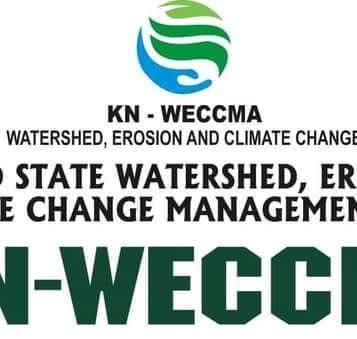By Usman Usman Garba
The Kano State Watershed Erosion and Climate Change Development Agency (KN-WECCMA) through the Ministry of Environment and Climate Change in collaboration with Partnership to Engage Reform and Learn (PERL) and Propcom + has engaged stakeholders in drafting a comprehensive climate change policy document for the state.
The engagement was the government’s reconvening for the second stakeholders and technical validation session focusing on the six thematic areas outlined in the draft Kano climate change policy.
During the event held at Tahir Guest Palace, Kano, the Executive Secretary of KN-WECCMA, Dr. Muhammad S. Khalil emphasized the policy’s objective to address climate change and mitigate its environmental impacts through a collaborative effort involving various stakeholders.
He said, “We initially drafted six thematic areas for the policy, but based on stakeholder feedback, we have expanded to eight, incorporating new focuses like afforestation, land use management, health, water resources, and education, among others.”
Dr Khalil also highlighted that the policy would reduce the effects of climate change and greenhouse gas emissions.
Adding that, immediately after the workshop, the final draft would be presented to the State House of Assembly for approval before implementation.
On his part, the member, of the Kano State House of Assembly and Chairman Committee on Environment, Hon. Musa Ali Kachako expressed his satisfaction with the stakeholder’s engagement and policy making.
“The occasion is to address the issues bothering people for long not only in Kano or Nigeria but worldwide.
“Environment plays a vital role in people’s health, what they will eat and this problem of climate change, if addressed will assist our people not only farmers but the whole society,” he emphasized.
In his interview with The Triumph, Professor Aliyu Gambo Nabegu of Aliko Dangote Science and Technology, Wudil, described the attempt as an excellent coming up with a policy that would deal with issues which did not require teaching.
He promised to give his quota of contributions towards addressing the issue, especially in the area of agriculture as 70 per cent of Kano citizens sought their livelihood in agriculture.
The initiative has received positive feedback from stakeholders, who view it as a vital step towards environmental protection and a sustainable future.


